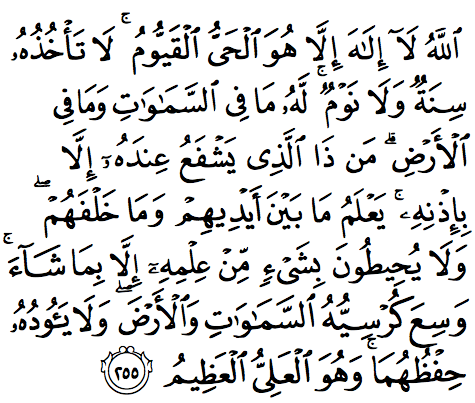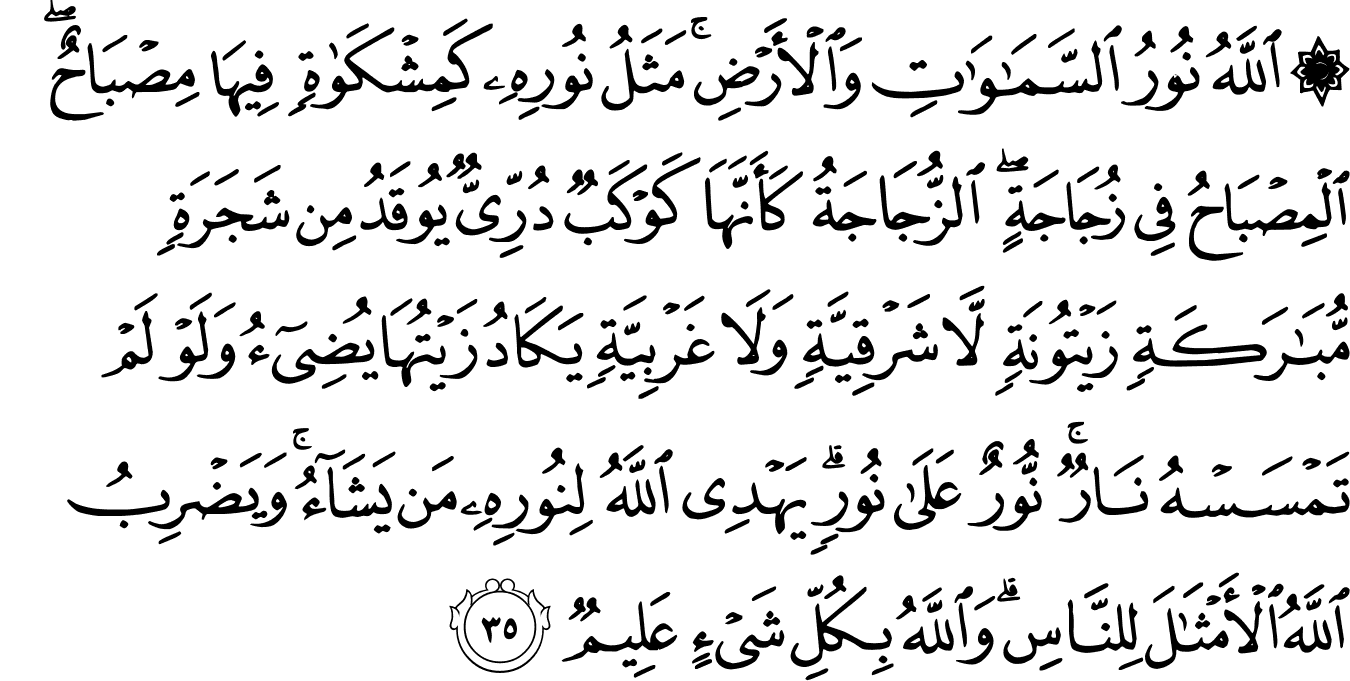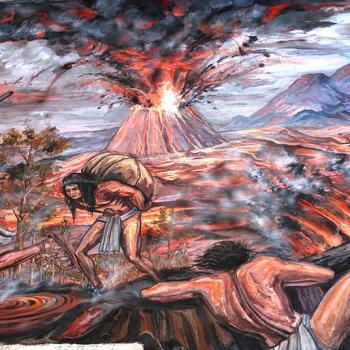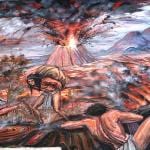
(Wikimedia Commons public domain photograph)
I offer here my own inadequate translations of two of the most loved verses in the Qur’an, which is revered as holy scripture by the world’s more than 1.5 billion Muslims:

God! There is no God but He, the Living, the Self-Existent.
Neither slumber nor sleep can seize Him.
Whatever is in the heavens or on the earth is His.
Who can intercede in His presence without His permission?
He knows what is before them and what is behind them
and they cannot comprehend anything about Him except as He wills it.
His throne extends across the heavens and the earth
and their preservation does not fatigue Him,
for He is exalted and most great. (Qur’an 2:255)

God is the light of the heavens and the earth.
The likeness of His light is as a niche in which there is a lamp.
The lamp is within a glass.
The glass is as if it were a brilliant star,
kindled from a blessed olive tree of neither the east nor the west.
Its oil would almost glow even if fire had never touched it.
Light upon light.
God guides to His light whomever he wills,
and He creates symbols for the people.
And God knows all things. (24:35)
Incidentally, a reader of this blog accused me, the other day, of cunning sleight of hand because I typically translate Allah as God, rather than leaving it as Allah. (I’ve just done it again in the translations above.) I realize that some, particularly (but not always) Muslims themselves, often retain the Arabic Allah. I myself prefer rendering it as God — just as I would translate German Gott, French Dieu, Greek ho Theos, Latin Deus, and Spanish Dios — because I worry that keeping it as Allah encourages the Western misunderstanding that Muslims worship a foreign God named Allah. On this subject, see an article that Bill Hamblin and I published back in January 2013:
“‘Allah’ is not pagan term — it means ‘God'”
Another point: The word that I’ve rendered as star in my translation of Qur’an 24:35 is kawkab. Compare that word to the Book of Abraham’s kokaubeam or “stars” (at Abraham 3:13, 16). Especially if you remove the Hebrew masculine plural ending -eam (today usually transliterated as -im) from kokaubeam, it’s not at all difficult to see the relationship between that word and kawkab. I don’t, of course, offer this (as such) as evidence for the authenticity of the Book of Abraham; Joseph Smith was studying Hebrew with Joshua Seixas at the time. I just thought that some who didn’t already know it might find it interesting.












